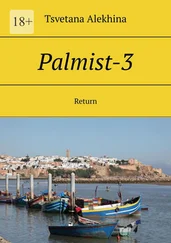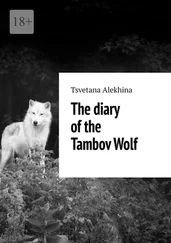Tsvetana Alеkhina - Choosing religion you choose fate
Здесь есть возможность читать онлайн «Tsvetana Alеkhina - Choosing religion you choose fate» — ознакомительный отрывок электронной книги совершенно бесплатно, а после прочтения отрывка купить полную версию. В некоторых случаях можно слушать аудио, скачать через торрент в формате fb2 и присутствует краткое содержание. ISBN: , Жанр: Религиозная литература, на английском языке. Описание произведения, (предисловие) а так же отзывы посетителей доступны на портале библиотеки ЛибКат.
- Название:Choosing religion you choose fate
- Автор:
- Жанр:
- Год:неизвестен
- ISBN:9785005596529
- Рейтинг книги:4 / 5. Голосов: 1
-
Избранное:Добавить в избранное
- Отзывы:
-
Ваша оценка:
- 80
- 1
- 2
- 3
- 4
- 5
Choosing religion you choose fate: краткое содержание, описание и аннотация
Предлагаем к чтению аннотацию, описание, краткое содержание или предисловие (зависит от того, что написал сам автор книги «Choosing religion you choose fate»). Если вы не нашли необходимую информацию о книге — напишите в комментариях, мы постараемся отыскать её.
Choosing religion you choose fate — читать онлайн ознакомительный отрывок
Ниже представлен текст книги, разбитый по страницам. Система сохранения места последней прочитанной страницы, позволяет с удобством читать онлайн бесплатно книгу «Choosing religion you choose fate», без необходимости каждый раз заново искать на чём Вы остановились. Поставьте закладку, и сможете в любой момент перейти на страницу, на которой закончили чтение.
Интервал:
Закладка:
Hitler himself claimed that he had put a symbol of the superiority of the Aryan race in the swastika, he himself wrote about this in a book called «My Struggle». In 1923, a congress was held, where Hitler managed to convince his colleagues that the black swastika on a white-red background was a symbol of the struggle against Jews and communists. The swastika was used paramilitary organizations long before the appearance of the Nazis in the political arena of Germany, as a symbol of nationalism. The soldiers of G. Erhardt’s detachment mainly wore this badge. The swastika became a prohibited sign; the distribution of the swastika was considered a criminal offense. This is indicated in paragraph 86a of the German Criminal Code. This happened in 1946, after the end of the Second World War.
The most significant difference between the Slavic swastika and the German one is the direction of its rotation. For the Fascists, it goes clockwise, and for the Slavs, it goes against it. In fact, these are not all the differences. The Aryan swastika differs from the Slavic one in the thickness of the lines and the background. The number of ends of the Slavic cross can be four or eight.
In Russia, Rosskomnadzor abolished the punishment for distributing swastikas on April 15, 2015.
In Slavic culture, the swastika denotes movement by the sun, and the other – against it. Movement on the sun means happiness, against it – misfortune. It is also interesting that the swastika that we used to see was a favorite symbol of Empress Catherine. She painted him wherever she lived.
The left-sided swastika is a counterclockwise rotation sign of purification, restoration. It also has the property of destruction – to build something light; you need to destroy the old and dark. Worshippers of this sign could wear their amulet with left-hand movements, this sign was called the «Heavenly Cross» and was a symbol of tribal unity and gave protection to the heavenly forces. The left—sided swastika was considered a sign of the autumn sun – collective.
The right-hand swastika rotates clockwise and denotes the beginning of all things – birth, development – it is a symbol of the power of the sun and the prosperity of the family, creative energy. This sign was also called Novorodnik or the Solar Cross. The sun sign and the swastika are equal in this case. It was believed that he gives the greatest power to the priests. Prophetic Oleg knew Ancient Wisdom, Ancient Vedas and wore this ancient sign on his shield. From these beliefs came the theories proving the ancient Slavic origin of the swastika.
Slavic amulets. The hope of protection from evil spirits was placed on the amulets – to protect them from evil, to take them away from their home, children and household. The swastika as a talisman is a sign that means the rotation of the Solar circle. At all times, the Slavs tried to protect themselves and their loved ones from evil, problems, slander, diseases and mental anxiety with the help of amulets. If we touch on history, the ancient Slavs worshiped the cult of the Sun, so Slavic amulets have always been with solar signs, the main task of which is to protect the person wearing them.
CHAPTER 3
Who are the Slavs, and where did this word come from. There are several meanings of this word. One of them is from the word praise. The Slavs glorified the sun, the gods. These people who glorify the world of Truth, perhaps is why they call us Orthodox. Christians have appropriated this word for themselves, and call themselves correctly glorifying their God. Perhaps that is why Christians call themselves Slavs. The next meaning of this word is glorious, glorious people. The compatibility of the suffix -yane is consonant with the names of the landscape (glade, drevlyane, kyane, buzhane). Perhaps this version has led many linguists to one of the understandings about the origin of the Slavs. In this case, it is possible that this is the name of one Slavic tribe, which later spread to all peoples (specific tribal ethnonyms for words – Slovaks, Slovenes, Slovenes, Ilmen Slovenes). There is a theory that it comes from the Slovutich River – the poetic name of the Dnieper; Sluya, Polish. The names of the rivers SawaAwa, SɫAwica, Serbian Slavnica. These words go back to the Indo-European root *leleu- meaning «to wash», «to purify». Everything also points to the Lithuanian village of Šlavėnai on the Šlavė River as the exact parallel name of «slovene», formed at the same time from the hydronym.
One of the versions says that the Slavs, Slovene, are people who speak «in words», that is, in our language, in their own language. For comparison, we can take a foreign-speaking tribe – the «dumb» ones. Of similar origin, the self-name of the Albanians is shqiptarët («speaking clearly»). In addition, the wordзыzyk («language») was used in the meaning of «people». The very essence of the meaning of «word», i.e. Slavs are people who have the gift of words, in comparison with other foreign-speaking peoples. According to the theory, this version was common among many peoples, – friend or foe. The author B.A. Rybakov interprets that the Slavs were related to the tribes of the Veneds are «sla» + «vienna», that is, the ambassadors of the Veneds. If we believe the historical data, then the first archaeological Slavic culture is the subclavian culture of the 5th – 2nd centuries BC. The area of distribution of this culture is southern Poland, the north of the Czech Republic and Slovakia, the southeast of Germany and the Carpathian region. This place is associated with the separation of the Slavic language from the Balto-Slavic language community. The Slavs bordered on the north with the Balts and Germans. On the east with the Iranian-speaking tribes of the Scythians and Sarmatians, on the south with the Illyrians and Thracians, on the west with the Celts.
According to another version, the self-name «Slavs» goes back to glory – these are «glorious», «famous people». These were the people in question, about whom the rumor speaks, about whom there is fame.
An equally popular theory tells that the «Slavs» originated from the name of the first community of the people, which gave this word spread to other territories in the process of emigration, especially during the Great Migration.
The Slavs migrated to Europe during the Great Migration of Peoples – this is an Indo-European people who were part of some ancient «Germanic-Slavic» community. The community of Slavs, having separated from the Germans, because, having found themselves on the border with wild Eastern peoples, lagged behind in their development, the flourishing Roman civilization became inaccessible to them at that time. This event served as a decline in the development of the community. Archaeology confirms the existence of strong cross-cultural ties between the Germans and the Slavs, and in general, the theory more than deserves respect if you remove the Aryan roots of the Slavs from it.
The first Slavic settlers on the territory of modern Ukraine and Russia were Drevlyans (inhabitants of forests) and Polyans (inhabitants of fields). It is known from the chronicles that at that time each family lived separately.
Little is known about the history of the origin of the Slavs, it is unanimously believed that they existed from 4—5 centuries. From unreliable information, it is known that before Europe, the Slavs lived in Egypt and Ethiopia, India and Palestine, Atlantis and the Arctic. Somewhere in the 1st millennium AD, the Slavs were divided into three groups: eastern, western and southern.
The Eastern Slavs adopted Orthodoxy. Eastern tribes are Russians, Ukrainians, and Belarusians. The Slavic Eastern branch included numerous tribes. The list of names of the tribes of Ancient Russia includes: Vyatichi, Bujan (Volynyan), Drevlian, Dregovich, Duleb, Krivichi, Polochan, Polyana, Radimichi, Slovenes, Tivertsev, Ulich, Croats, Bodrichi, Vislyan, Zlichan, Luzhichan, Lyutich, Pomoryan. After the adoption of Christianity, the Slavs did not willingly say goodbye to the gods. The adoption of Christianity was voluntary. Pagans were not burned at the stake; villages were not cut out, as the Crusader Catholics did with the Western Slavs and Lithuanians. Christianity and paganism existed peacefully and for quite a long time.
Читать дальшеИнтервал:
Закладка:
Похожие книги на «Choosing religion you choose fate»
Представляем Вашему вниманию похожие книги на «Choosing religion you choose fate» списком для выбора. Мы отобрали схожую по названию и смыслу литературу в надежде предоставить читателям больше вариантов отыскать новые, интересные, ещё непрочитанные произведения.
Обсуждение, отзывы о книге «Choosing religion you choose fate» и просто собственные мнения читателей. Оставьте ваши комментарии, напишите, что Вы думаете о произведении, его смысле или главных героях. Укажите что конкретно понравилось, а что нет, и почему Вы так считаете.












